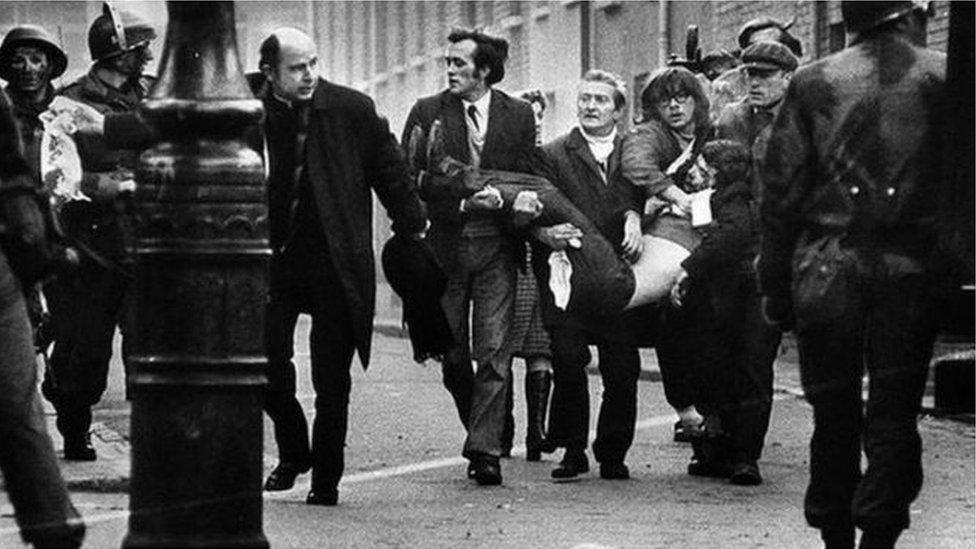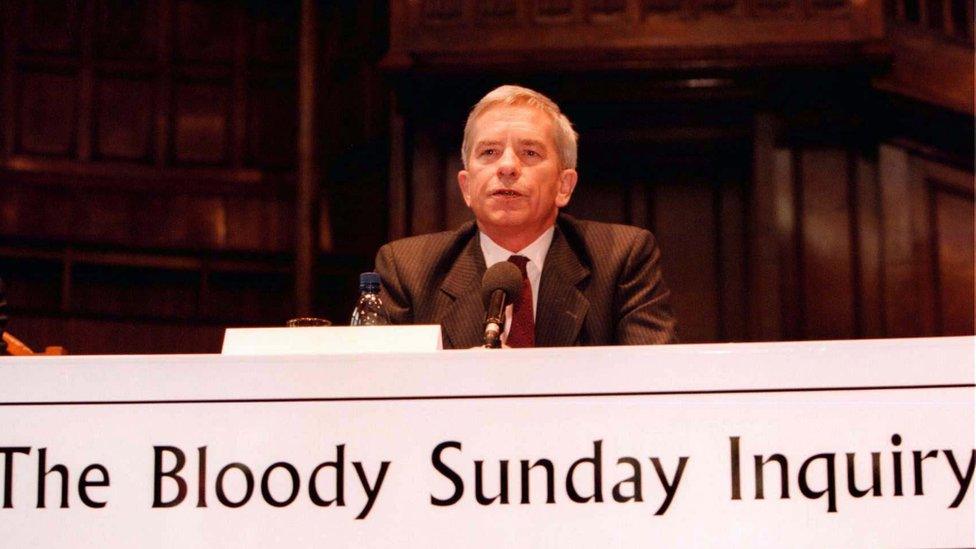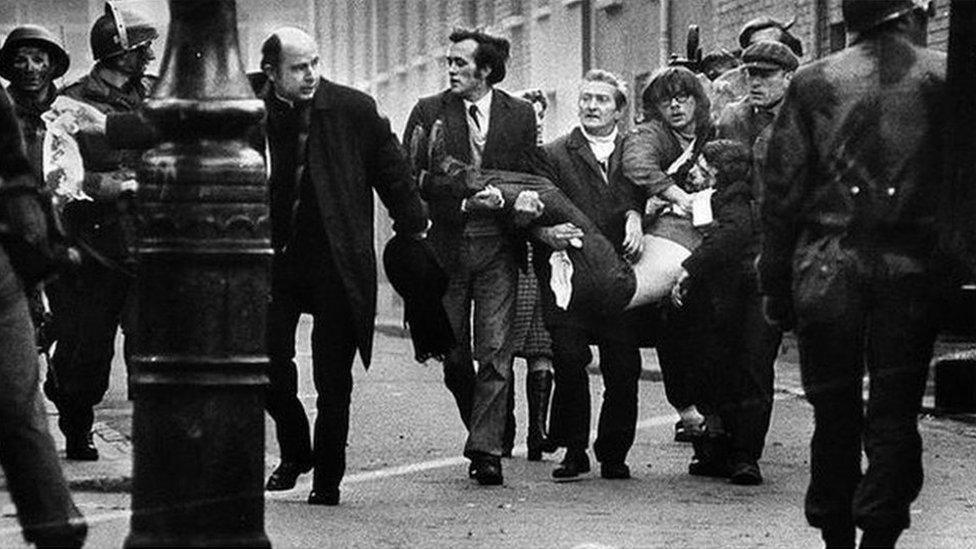Bloody Sunday: 18 soldiers 'considered for prosecution'
- Published

Thirteen people were killed on Bloody Sunday in January 1972
Prosecutors are considering whether various charges should be brought against 18 soldiers over their involvement in Bloody Sunday.
Official correspondence shows the Public Prosecution Service (PPS) is also looking at potential prosecutions of soldiers for perjury.
Thirteen people were shot dead when members of the Army's Parachute Regiment opened fire on civil rights demonstrators in Londonderry in 1972.
Fifteen people were injured.
The Police Service of Northern Ireland (PSNI) began a murder investigation after the Saville Report on the killings in 2010 said that those who were killed or injured on Bloody Sunday were innocent.

The families of the victims of Bloody Sunday led a long campaign for the truth
At the same time, the then prime minister David Cameron issued a public apology for the actions of the soldiers - describing the killings as "unjustified and unjustifiable".
The police investigation took a number of years to complete and detectives then submitted their files to the Public Prosecution Service towards the end of last year.
Four veterans dead
The BBC has obtained a letter from a senior public prosecutor detailing the criminal charges the soldiers could face.
They include murder and attempted murder, wounding, perjury and joint enterprise, which means an offence where two or more people are involved.
In the correspondence from the PPS, the identities of the 18 soldiers are withheld; instead, they are referred to by letters of the alphabet allocated to them at the time of the Saville inquiry.

Supporters of the families packed Derry's Guildhall Square and cheered as David Cameron apologised on behalf of the state in 2010
The letter also reveals that four other soldiers, whose actions on Bloody Sunday formed part of this investigation, have since died.
The correspondence states:
Two soldiers have been reported to the PPS for the shooting of Damien Donaghy, and John Johnston, who died several months after Bloody Sunday
Four soldiers have been reported for the killing of six people; also reported over the wounding of seven people
Three different soldiers have been reported over the killings of four other people
A further three soldiers have been reported over the killing of Kevin McElhinney
An additional seven soldiers - one of whom has since died - have been reported over the killing of John Duddy and the shooting of Margaret Deery, Michael Bridge, Michael Bradley, Patrick McDaid, Patrick Brolly and Pius McCarron
One soldier has been reported for the killing of Hugh Gilmour and another soldier for the killing of Kevin McElhinney
The four dead soldiers were reported for the killing of nine people

The Bloody Sunday Inquiry, led by English judge Lord Saville, was the longest and most expensive in UK history
The PPS said it was actively considering Bloody Sunday investigation files that it received last December, but had not yet taken a decision on possible prosecutions.
"It is likely to be some time before any decision will issue," said a PPS spokesperson.
"We have recently made contact with families to provide an update on progress and also to explain our role and some of the legal issues that require consideration in this case."
SDLP leader Colum Eastwood said Bloody Sunday had been "a stain on our history" and the "idea that people can murder with impunity" should not be allowed to stand.
"I hope that there are charges brought to those people who, as we've seen through the Saville inquiry, were absolutely off the leash in murdering with impunity on the streets of Derry," he added.
The Democratic Unionist Party's Gregory Campbell said the development was "proof positive of the partisan approach" taken by the PPS in relation to Troubles murder cases.
"This is an outrageous example of former soldiers who stood against the sectarian terrorism of 1972, instigated by the IRA, now being tried while many of those who hid behind balaclavas have avoided any trial," he added.
Clarification 9 April 2019: This article was amended to remove a reference to the death of John Johnston. This reflects the Bloody Sunday Inquiry's finding about Mr Johnston's death several months after he was wounded in Derry on 30 January 1972. The inquiry report states that his death was "not the result of any of the wounds he sustained on Bloody Sunday".
- Published10 November 2015
